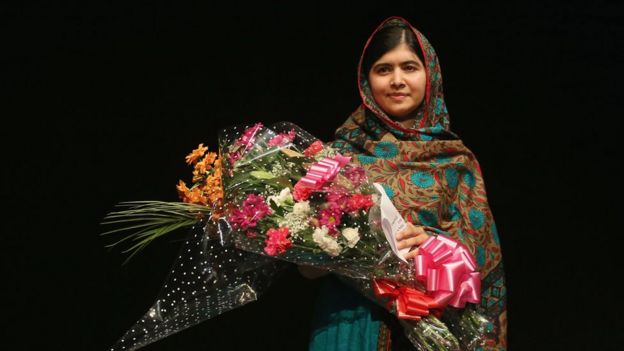Trump signs 'extreme vetting' order to limit immigration
US President Donald Trump has announced new vetting measures to "keep radical Islamic terrorists out of the US".
He signed a wide-ranging executive order which, among other measures, bans Syrian refugees until further notice.
It also put a cap of 50,000 refugees entering the US in 2017 - less than half the previous upper limit.
In a TV interview broadcast on Friday, the president said Christians would be given priority among Syrians who apply for refugee status in the future.
He signed the executive order at the Pentagon after a ceremony to swear in Gen James Mattis as defence secretary.
During the ceremony, Mr Trump said: "I'm establishing new vetting measures to keep radical Islamic terrorists out of the United States of America. We only want to admit those into our country who will support our country and love deeply our people."
The text of the order was released several hours after it was signed. Among the measures are:
- Suspension of the US Refugee Admissions Programme for 120 days
- A ban on refugees from Syria until "significant changes" are made
- A 90-day suspension on arrivals from Iraq, Syria, and "areas of concern" - reported to include Iran, Libya, Somalia, Sudan, and Yemen
- To prioritise future refugee applications on the basis of religious-based persecution - but only if the person is part of a minority religion in their home country
- A cap of 50,000 refugees in 2017 - less than half of Mr Obama's upper limit
However, a mention of creating "safe zones" within Syria, seen in an earlier draft, was removed from the final order.
The order also said all immigration programmes should include questions to "evaluate the applicant's likelihood of becoming a positively contributing member of society."
Other measures include a broad review of the information required from all countries to approve a visa; a review of visa schemes between nations to ensure they are "truly reciprocal" for US citizens; and the immediate suspension of the Visa Interview Waiver Programme.
But the document also says exceptions to most restrictions could be made on a case-by-case basis.
- Trump's 'extreme vetting' order sows panic
- How a Syrian refugee gets to the US
- Syrian refugees in the US, in graphics
President Trump also signed an executive order aimed at rebuilding the military by "developing a plan for new planes, new ships, new resources and new tools for our men and women in uniform".
Last year, the administration of then-President Barack Obama admitted 10,000 Syrian refugees into the US. Neighbouring Canada - whose population is a ninth of that of the US - took in 35,000.
During the presidential campaign, Mr Trump suggested a "total and complete shutdown of Muslims entering the United States until our country's representatives can figure out what is going on".
But he has made no mention of this since being elected last November.
The signing of the executive order has been met with criticism from Democrats and notable figures.
Democratic Senator Kamala Harris wrote that the order had been signed on Holocaust Memorial Day. "Make no mistake — this is a Muslim ban," she wrote.
"We have opened our doors to those fleeing violence and oppression for decades, by presidents on both sides of the aisle."
"During the Holocaust, we failed to let refugees like Anne Frank into our country. We can't let history repeat itself," she said.
Malala Yousafzai, the teenage Nobel Peace Laureate who was once shot by the Taliban following her advocacy for women's education in Pakistan, wrote that she was "heartbroken".
"Today President Trump is closing the door on children, mothers and fathers fleeing violence and war," she said.
 GETTY IMAGES
GETTY IMAGES
"America is turning its back on a proud history of welcoming refugees and immigrants - the people who helped build your country, ready to work hard in exchange for a fair chance at a new life," she added.
Facebook founder Mark Zuckerburg also posted a lengthy note to his own profileon the site, saying he was "concerned" about the president's executive orders, and noting that he, like many Americans, is the descendant of immigrants.
"These issues are personal for me even beyond my family," he wrote. "A few years ago, I taught a class at a local middle school where some of my best students were undocumented. They are our future too."

ไม่มีความคิดเห็น:
แสดงความคิดเห็น